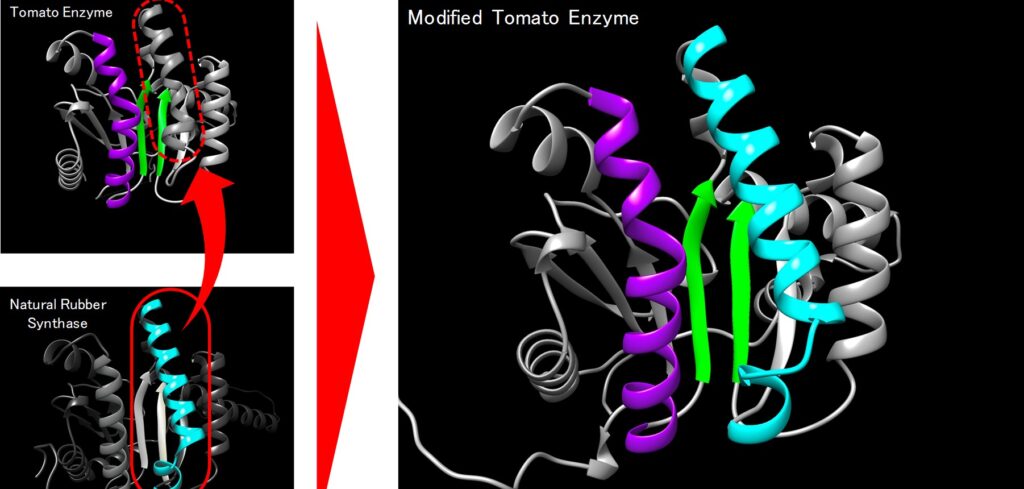Sumitomo Rubber Industries has revealed that – through joint research undertaken with Associate Professor Seiji Takahashi of Tohoku University, Associate Professor Satoshi Yamashita of Kanazawa University and Professor Yuzuru Tozawa of Saitama University – its experts have identified the segment of natural rubber synthase that plays an important role in controlling natural rubber polymer chain lengths. In addition, by recombining this segment with an enzyme derived from tomatoes, SRI has succeeded in synthesizing a biopolymer that features a structure not found in nature. Moving forward, the tire maker will continue this line of research in the hope that it will lead to improved natural rubber yields, as well as the creation of new strains of natural rubber that will contribute to improvements in overall tire performance.
Through the research, teams succeeded in discovering the important segment that affects chain length by comparing the structures of the enzymes involved in the synthesis of natural rubber (long chains) with the structures of the enzymes involved in isoprene chain synthesis of tomatoes (short chains), as both of these enzymes belong to the same enzyme group and share similar structures.
It was also discovered that replacing this important segment of the tomato enzyme with the same segment from the natural rubber synthase resulted in a modified enzyme that synthesized polyisoprene with chain lengths comparable to natural rubber. The use of this modified enzyme enabled utilization of a starting substrate that is unlike natural rubber synthase in order to successfully synthesize a biopolymer not found in nature as the product of the resulting synthesis reactions.
SRI announced the results of the research at the DKT IRC expo and conference, which was held in June in Nuremburg, Germany.



